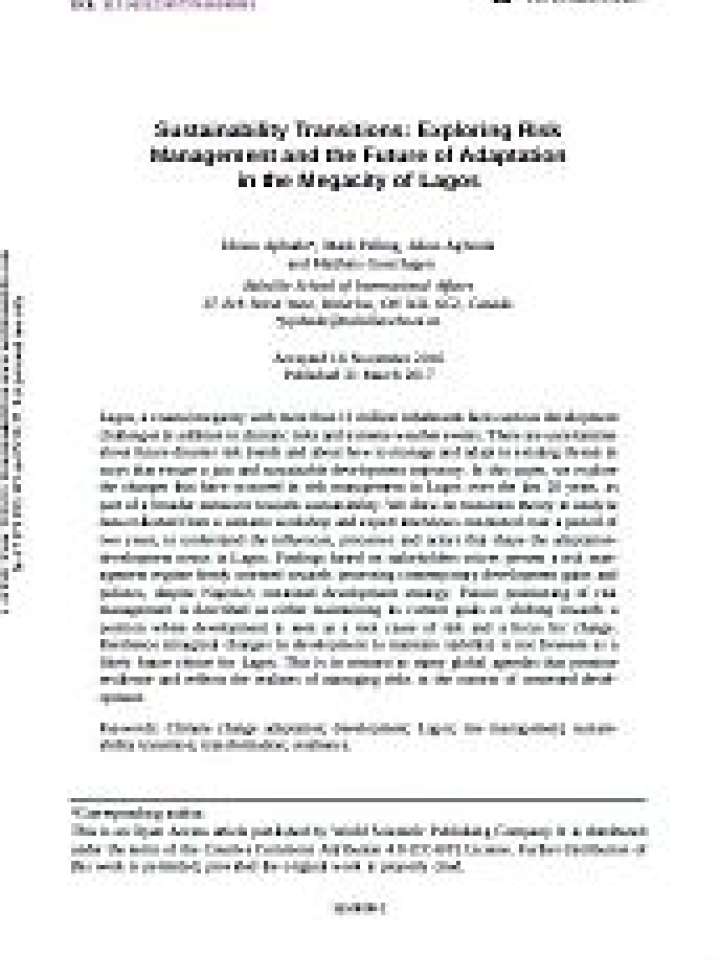Sustainability transitions: Exploring risk management and the future of adaptation in the megacity of Lagos
This paper explores the changes that have occurred in risk management in Lagos over the last 20 years, as part of a broader endeavor towards sustainability. It draws on transition theory to analyze data collected from a scenario workshop and expert interviews conducted over a period of two years, to understand the influences, processes and actors that shape the adaptation-development nexus in Lagos. Findings based on stakeholders voices present a risk management regime firmly oriented towards protecting contemporary development gains and policies, despite Nigeria’s contested development strategy. Future positioning of risk management is described as either maintaining its current goals or shifting towards a position where development is seen as a root cause of risk and a focus for change. Resilience (marginal changes in development to maintain stability) is not foreseen as a likely future choice for Lagos. This is in contrast to many global agendas that promote resilience and reflects the realities of managing risks in the context of contested development.
Journal of Extreme Events, Volume 03, Issue 03
Explore further
